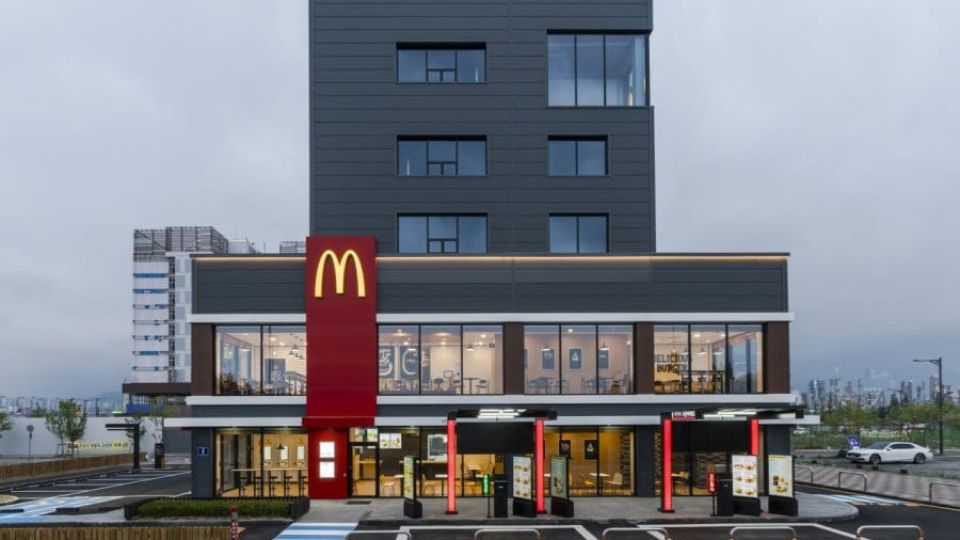May 4, 2023
SEOUL – Korean people love burgers, but potential buyers hesitate to snap up deals tied to global burger franchises like McDonald’s due to rigorous headquarter policies that often spark conflict and hinder growth.
McDonald’s Korea has been struggling to find a buyer since it has been put up for sale in June last year despite double-digit growth of Korea’s hamburger market in recent years.
According to market research firm Euromonitor, the hamburger market here was valued at 4 trillion won ($2.9 billion) last year, seeing a 42 percent jump from 2018.
On April 27, Korean food and logistics conglomerate Dongwon Group decided to give up its purchase bid for the Korean subsidiary of global burger franchise McDonald’s after participating as the sole bidder in January for an undisclosed amount.
According to a Dongwon Group official, the Korean group’s recent decision to abandon its bid was mostly due to its limited autonomy over the management of local operations.
“Due to the confidentiality agreement, we can’t say much on the matter,” said an official from Dongwon Group.
“However, as far as I know, the bid was not dropped because of the (two companies’) differing opinions on buyout prices,” he said.
The bigger reason for Dongwon Group opting out of the deal was its highly limited role in the management of McDonald’s Korean outlets, according to the official.
“When you acquire a company, you need to take its management rights. With this autonomy, you need to be able to do what you need to do in order to improve the business and make profits,” the official said.
More management control would have been needed to improve the deteriorating performance of McDonald’s Korea, which has been in the red in recent years, said a representative from a local food company on the condition of anonymity.
“McDonald’s Korea has been suffering from a deficit for some time. If the new buyer can’t make tweaks in the way it is currently running its business in Korea, the company would not be able to make profits in the saturated market for burgers,” he said.
McDonald’s Korea posted operating losses of 27.8 billion won in 2021, along with net losses of 34.9 billion won. A year before, it had posted operating losses of 48.4 billion won.
McDonald’s is “one of the most heavily regulated” global franchises, said another representative from a local food company on the condition of anonymity, adding that selecting menu items and marketing tactics are managed by the global headquarters.
“Although McDonald’s is a global brand, it should allow its outlets to be operated locally to some extent according to domestic circumstances,” he added, saying its failure to do so was the reason behind its numerous failures to find a local buyer.
In 2016, McDonald’s had attempted to dispose of its Korean business to a slew of Korean conglomerates such as CJ Group, KG Group, NHN Entertainment — as well as to a consortium led by the private equity fund Carlyle Group and Maeil Dairies. However, the deals fell through for numerous reasons, including the high buyout price raised by McDonald’s.
KG Group, which sold KFC Korea to private equity fund Orchestra on April 27, also raised similar concerns about restrictions on its management rights as a local operator.
Since KG Group acquired KFC Korea from CVC Capital for some 50 billion won in 2017, KG Group said that it has experienced a slew of conflicts with KFC global headquarters about interpretations of global operation policies which failed to take into account domestic business conditions.
“One of the main reasons KG Group terminated its relationship with KFC was because it did not let us operate Korean outlets freely,” an official from KG Group told The Korea Herald.
“For example, during the pandemic, we wanted to initiate a delivery business. However, KFC made it very difficult for us to start the business, saying that South Korean outlets would be one of the only KFC outlets in the world that offer delivery services,” he added.
Also, when KG Group pushed for a plan to have a Korean menu in KFC outlets, he said that the plan had been canceled due to opposition from the global headquarters.
“We wanted to maintain our relationship with KFC by operating their outlets here, since KFC’s performance in Korea had steadily improved under our operations,” he said.
“But we decided to sell it because business was not working out for either group,” the KG Group official said, adding that it’s becoming increasingly difficult for Korean groups to retail and operate multinational chains due to their strict adherance to global management policies.


